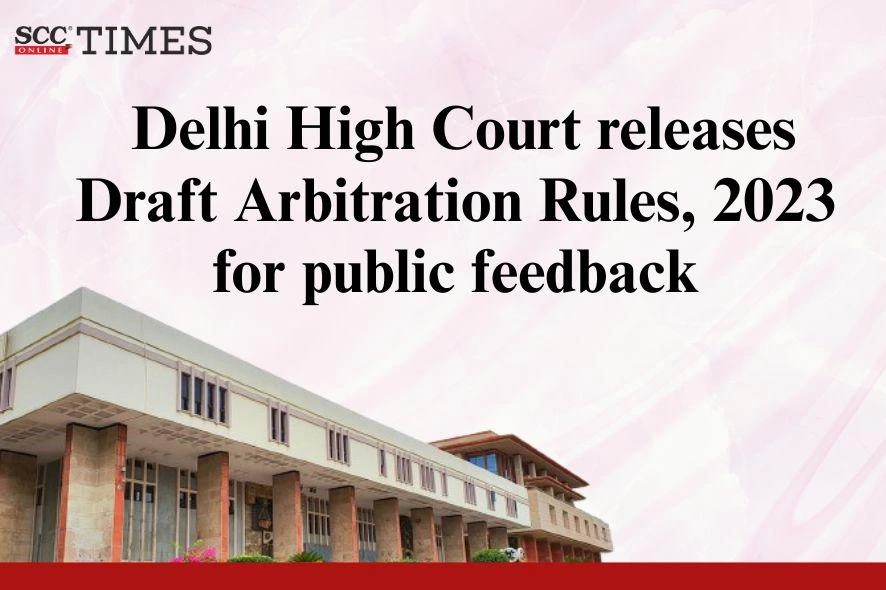The Delhi High Court has released the Draft Arbitration Rules, 2023, aiming to streamline arbitration proceedings under its jurisdiction. These rules, framed under the Arbitration and Conciliation Act, 1996 and the Delhi High Court Act, 1966, are open for public consultation until 05-07-2025, and aim to enhance procedural clarity, improve institutional support, and align with global arbitration best practices.
Objective of the Draft Arbitration Rules:
- To regulate the practice and procedure of arbitration matters filed in or governed by the Delhi High Court.
- To consolidate existing practice directions and judicial pronouncements.
- To ensure uniformity and efficiency in arbitration-related proceedings.
-
To facilitate institutional arbitration and enhance enforceability of arbitral decisions.
Key Highlights and Proposed Measures:
-
Structured Filing Requirements for Arbitration Applications
a. Detailed procedural requirements for filings under Sections 8, 9, 11, 14, 15, 17, 27, 29A, 34, 36, 37, 39 of the Arbitration and Conciliation Act, 1996.
b. Mandatory inclusion of synopses, statements of jurisdiction, arbitration agreements, and proof of advance service.
-
Encouragement of Institutional Arbitration
a. Parties will be encouraged to opt for arbitration under institutional frameworks unless they state otherwise.
-
Tribunal Fee Structure Linked to Fourth Schedule
a. Fees of arbitrators appointed by the High Court to be governed by the Fourth Schedule of the Act, unless agreed otherwise.
-
Maintenance of Arbitral Records
a. Tribunals seated in Delhi must maintain well-indexed and paginated records, with digital copies accessible for Court supervision.
-
Jurisdictional Clarity
a. Clear rules for establishing territorial and pecuniary jurisdiction, especially in matters under the Commercial Courts Act, 2015.
-
Advance Service Protocol
a. Applicants must serve advance copies on opposite parties, including government or statutory authorities, with proof of service by email or through standing counsel.
-
Unified Format and Indexing
a. All arbitration petitions must follow a consolidated filing format, akin to writ petitions.
-
Connected Matters to Be Heard Together
a. Multiple proceedings arising from the same contract or dispute (e.g., Section 34 challenge and Section 36 enforcement) will be listed before the same Bench.
-
Specific Nomenclature for Different Applications
a. Standardized case-type codes like “ARB.P.” or “OMP(COMM)” will distinguish between types of arbitration-related filings.
-
Pre-listing Submissions and Oral Hearing Limits
a. Courts may direct pre-submission of written arguments and fix oral argument timelines to improve efficiency.
-
Power of Amendment & Repeal of Previous Schemes
a. The Chief Justice of is empowered to amend these Rules. Older practice directions and the 1996 Arbitrator Appointment Scheme will be repealed prospectively.
Public Consultation
Stakeholders, including advocates, arbitrators, litigants, and institutions, are invited to submit objections or suggestions to the Draft Arbitration Rules by 05-07-2025 via email at jr-rules.dhc@gov.in.







